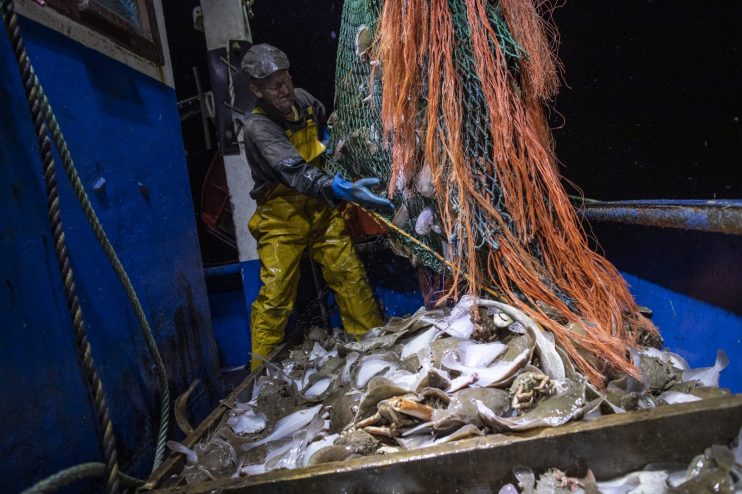Brexit: Chance of no-deal exit ‘underpriced’, says Number 10

There is still a reasonably good chance the UK will leave the post-Brexit transition period on a no-deal basis, according to Downing Street.
The UK will leave the EU’s single market and customs union with or without a trade deal on 31 December.
A no-deal exit would mean that trade barriers between the EU and UK would be immediately erected, with tariffs on some UK exports rising to as much as 35 per cent.
Intensive trade talks between the UK and EU are continuing next week, however a Downing Street source told The Sunday Telegraph that “significant gaps” still remain on fisheries.
“No deal is arguably underpriced,” the source said.
A no-deal exit from the EU would see two per cent of the UK’s 2021 GDP growth wiped out, according to the Office for Budget Responsibility (OBR).
The OBR said this scenario would leave long-term economic scarring in the form of lower GDP growth for years to come.
Foreign secretary Dominic Raab reiterated in an interview with Sky News today that Brussels must climb down from its demands on access to UK fisheries and that leaving without a trade deal was a very real possibility.
“As we leave the transition [period], we are an independent coastal state – we’ve got to be able to control our waters,” he said.
“We can talk about transitions and things like that and we recognise the impact it has on other countries around Europe.
“But that principle comes with sovereignty, comes with leaving not just the EU but the transition period.”
Irish foreign minister Simon Coveney also said the remaining barriers to a deal were proving to be a serious challenge.
“The outstanding issues around fair competition and fisheries, and indeed governance in relation to the level-playing-field issue, are proving very, very difficult issues to make progress on, if the truth be told”, Coveney said.
EU chief negotiator Michel Barnier’s starting position in talks with the UK was that Brussels wanted EU countries to retain the same rights to fish in British waters as they had prior to Brexit.
This was turned down by UK chief negotiator David Frost, who said on many occasions that the UK will be a “independent coastal state” from next year.
Frost has pushed for a “zonal” arrangement, which would see EU countries allowed only a certain amount of fish from UK waters every year.
The UK also wants this arrangement to be re-negotiated on a regular basis.
It is believed that Barnier is now demanding for the EU to keep around 80 per cent of its current access to UK waters.